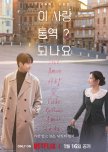
This review may contain spoilers
A Drama Adrift in Beauty and Hesitation
I thoroughly enjoyed the first installment of this saga, Flourished Peony. It was a richly woven drama where visual splendour met emotional depth, anchored by two leads whose chemistry is both undeniable and deeply refined. In my view, they rank among the finest actors working in Chinese television today. That said, I haven't always connected with all their previous performances, but here, at least in terms of craf, they were outstanding.With such a solid foundation, I approached In the Name of Blossom with genuine anticipation. It promised a continuation both narratively and emotionally. And yet, despite flashes of brilliance, this second part ultimately falters. While the production values remain high and the acting commendable, the story’s rhythm slackens. The romantic thread, for one, takes far too long to gain momentum. What begins as a slow burn teeters dangerously close to narrative inertia. At times, the focus on the heroine’s professional journey and the broader commercial landscape overwhelms the emotional core. A viewer can endure extended tension, but only if met with meaningful emotional rewards. Unfortunately, here, those are few and far between.
A particular source of narrative frustration lies in the portrayal of the Emperor. For a man endowed with absolute authority, he comes across as curiously impotent, lurking in the shadows, plotting with unnecessary subtlety while his brother openly schemes against him. One can appreciate the need for tension and intrigue, but realism, and dramatic satisfaction, suffers when power is wielded so passively.
Equally, I found myself longing for a narrative decision that never came: for Mu Dan to be elevated from concubine to principal wife. I'm aware that such transitions may be culturally complex or historically rare, but in the realm of drama, where symbolic gestures can resonate powerfully, it would have given their relationship the weight and worth it deserved. I was reminded of a moment in the recent drama "Are You the One", where the FL, with calm certainty, tells the ML that if he truly loved her, he would never ask her to accept the role of a mere concubine. That line stayed with me, not because it was emphatic , but because it was resolute.
Moreover, the ending lacked the emotional climax one might expect. When the lovers reunite after believing each other lost, the moment feels strangely muted. One anticipates a release of long-suppressed emotion, a reckoning with grief and hope, but instead, the scene lands flat, as if afraid of its own emotional potential. The final episodes suffer from the same affliction: an overabundance of symbolic gestures, ships, markets, carts laden with goods, gestures of goodwill to the less fortunate, that, while aesthetically beautiful, begin to feel didactic rather than dramatic.
Still, there are elements worth cherishing. The secondary cast, particularly Mu Dan’s circle of female companions, bring texture, warmth, and humour. The music, delicate and atmospheric, lingers in the background like a thread of mist, subtle, but ever-present. And the costumes and makeup are nothing short of exquisite: richly detailed, elegant, and evocative of another time.
In the end, In the Name of Blossom is a beautifully produced continuation that, while ambitious, never quite lives up to the emotional strength of its predecessor. It’s clear that the creators poured their hearts into it, but the script, for all its lyricism and political intrigue, failed to move me.
That said, I would love nothing more than to see these two lead actors reunited in a future project. Their chemistry is cinematic gold, only this time, may the writing rise to meet them.
Was this review helpful to you?

This review may contain spoilers
How to Lose a Plot in 40 Episodes — and Still Walk Away with Liu Yuning's Spine Intact
★★★☆☆ (5/10) — Four stars for Liu Yuning’s lumbar courage, one for the costume budget, zero for narrative mercy.Some dramas are good. Some are bad. And some exist in that rare third category: the genre-bending fever dream you watch out of loyalty, finish out of morbid curiosity, and then question your entire concept of narrative coherence.
Let’s start with the central mystery: What genre is this?
Is it a romance? No, unless you define romance as one person emotionally bleeding out while the other flicks metaphysical riddles at them. Is it satire? Perhaps. Parody? Sometimes. A parody of a parody? Getting warmer. A slow-burn fantasy with a twist of self-awareness? Possibly, if the “twist” snapped the narrative spine somewhere around episode 12 and nobody told the scriptwriters.
This is not a slow-burn romance, it’s more of a cold shoulder in silk robes. And yet, like many viewers, I clicked play. Why? Three reasons:
The poster, which promised epic fantasy and emotional depth.
The premise, which teased brilliance through narrative self-reference.
Liu Yuning, whose performance, spine, and general ability to suffer gracefully on screen have become the stuff of legend.
He enters as the God of Death, cloaked in threat and charisma, a walking, brooding contradiction of pain and purpose. But as episodes pass, he degrades into what can only be described as the Patron Saint of Emotional Begging. Watching him go from divine menace to doormat philosopher is both impressive and heartbreaking.
And the FL? She knows she's in a novel world. She has foreknowledge of events. She understands the narrative setup. In short, she holds the cheat codes. And what does she do? She gaslights the ML, fumbles assassination plans, and drops half-baked existential quotes like fortune cookies from a bad philosophy class. This could’ve been the smart kind of self-aware fiction, where a character leverages story logic to reshape her fate. Instead, we got 31 episodes of emotional whirligig, poorly planned sabotage, and dialogue that could be summarised as: “Yes, I’m hurting you. But it’s because I read the spoilers.”
Her reactions? Inexplicable. Her growth? Non-existent. Her emotional intelligence? Hovering somewhere between “toddler in a tantrum” and “taxidermied Victorian doll.” And the dialogue? Forget poetic, every line sounds like she's haggling over bootleg scrolls at a metaphysical flea market. Again, this isn’t the actress’s fault. Clearly someone behind the camera instructed her to exceed parody and she committed with wild-eyed determination.
This is not what a heroine should do in a self-aware fiction drama. What should she do?
Observe the narrative structure and learn its rules.
Make allies- power in fiction equals survival.
Use foreknowledge to evolve strategically.
Stop weaponising emotional trauma as plot filler.
Build an actual arc- with intention, consequences, and vulnerability.
Instead, she walks in philosophical circles, drags the ML along with half-truths, and treats emotional consistency like an optional side quest.
Now, let’s talk about writing.
A good script, especially one dealing with stories that reflect on their own structure and romance, needs three things:
Character Consistency- Development, not regression.
Emotional Logic- If we can’t follow the “why,” we stop caring about the “what.”
Earned Moments- Big scenes must be built upon, not dropped in like surprise confetti from a broken ceiling.
This show ignores all three. Pacing oscillates like a caffeinated metronome. Plot arcs appear and vanish like side characters in a dream. Emotional payoffs? Denied. Instead, we get… the bite scene.
Yes. That cringe-crowned moment when the ML, bleeding from a sword wound and barely conscious, is violently shaken and then bitten by the FL in an act that’s equal parts rabid and romantic-adjacent. No tenderness. No catharsis. Just… jaw-dropping nonsense. The kind of scene that makes you question not the actors, but the writer’s grasp of human interaction, or gravity.
And the Crown Prince? Introduced as a man with the comedic energy of someone who might grow donkey ears and burst into song, he later pulls off a sword-wielding redemption arc. How? No one knows. He undergoes a 180° emotional transformation faster than a Netflix recap can say “previously on.” The Emperor, meanwhile, spends what feels like an eternity inventing increasingly sadistic punishments for his son, only to pivot without warning into "Father of the Year" mode. Don’t look for logic here. Our scriptwriter clearly believed they were penning the drama of the century, possibly while sipping hallucinogenic tea or something far stronger.
Even Gárgamel, with his cat Azrael, had clearer motivation than our eyebrow-wielding villain here. And at least Gárgamel knew what he wanted (Smurfs). This villain? He sneers. He raises an eyebrow. He plots vaguely. He exists in a state of permanent dramatic squint, delivering monologues that suggest he thinks he's in Macbeth while everyone else is stuck in Scooby-Doo. With every new plan, he seems one cackle away from asking where the smurfs went. It’s not menace, it’s theatrical confusion. His villainy becomes so exaggerated it borders on self-parody. It’s not that he twirls an actual mustache, it’s more like he’s auditioning for the role of a moustachioed villain straight out of the melodrama bargain bin.
Which brings us to the supporting cast, criminally underused and suspiciously better written. The Nightwalkers? An intriguing and promising concept, sadly underused and left mostly unexplored. The sister? More logical, more emotionally full of subtlety. Fu Gui? A minor character with more clarity and heart than the entire central arc.
Cinematography? Competent. Wardrobe? Sumptuous and repetitive, at least if you're the FL, condemned to recycle the same gown in several key episodes. The ML’s outfits, on the other hand, seem to have enjoyed both budget and narrative respect. Pacing? Like a rubber band stretched too thin over a 40-episode arc. Dialogue? Cringe-worthy at best, with failed attempts at humour that never quite land.
And the ending?
Equal parts predictable and nonsensical, a rare feat. I watched the final stretch at 2x speed, not because I was bored, but because I needed to emotionally outrun the plot.
So what is this drama?
Not a romance. A romance requires mutual emotional investment, vulnerability, and growth. This gave us martyrdom, manipulation, and confusion. Not a parody either, parody implies purpose. This felt more like someone spilled three genres into a blender, added eyeliner and trauma, and hoped for magic.
And yet. Liu Yuning stands tall. His character bleeds, breaks, and somehow survives, narratively, emotionally, and physically. He lends gravitas to a script that doesn’t deserve him, making the unwatchable nearly worthwhile. He does it all armed with nothing but cheekbones and that gaze, the kind that carries centuries of suffering and half the audience’s emotional investment. In the end, this isn’t a drama. It’s a hostage situation. One where the script holds its characters captive, and only LYN attempts a jailbreak, with no tools but his eyes and a well-fitted cloak.
Would I recommend it? Only with caveats.
If you’ve just emerged from the raw anguish of Moon Lovers, the sharp narrative elegance of Story of Kunning Palace, or the unexpected emotional payoff of The Prisoner of Beauty, my advice is simple: give this one a miss, or at least, wait. Let the memory of strong writing cleanse your palate. This drama might wear the costume of intelligence and genre experimentation, but beneath the surface, it sells you a sheep in wolf’s clothing, and expects applause.
Me? I’m off to rewatch Story of the Kunning Palace and TPOB. I need to remember what good writing looks like.
This is just my personal take, and I hope no one gets offended, everyone’s tastes are different, just like in my book club where we all have our own opinions. If you loved this drama, that’s awesome! I’m happy for you. All I ask is that you respect my view, too. After all, variety is what makes stories interesting… even if sometimes the flavour’s not quite to my taste.
Was this review helpful to you?

This review may contain spoilers
Cookery, Radishes, and a King No One Should Date
From the start, this drama promised a feast: palace intrigue, time travel, food as centrepiece, and a spirited FL tossed into the past to cook with whatever she could find. For someone who binges cookery shows, the premise was irresistible. But a flimsy script and an unbalanced mix of kitchen theatrics and limp romance soon dulled the flavour. By the end, it felt less like a banquet and more like a reheated takeaway.Romance was supposed to be on the menu, but it never made it out of the kitchen. Across twelve episodes, the leads had less chemistry than vinegar and milk. Then came Episode 11: after a shocking revelation, the king, in a fit of rage, nearly kills his own grandmother, stopped only by a sudden “I love you” from the FL. Dropped in without warning, it didn’t feel like passion; it felt like a clumsy patch on a gaping wound. Because really, if you’re prepared to slaughter your grandmother in front of the court, you’re not a brooding romantic lead. You’re a tyrant, and no pantry-stocked declaration of love can disguise that.
By episode 12, the king strolls into 2025 in designer clothes, and when the FL quite sensibly asks how, he shrugs: “It’s a secret.” That’s the narrative equivalent of slapping a bow on a plot hole. If I’d been swept up, maybe I’d let it slide. But here, it exposed how thin the scaffolding really was. And that final kiss? I’ve felt more spark peeling the lid off a yoghurt pot.
The Ming envoys didn’t help. From Episode 6, four whole episodes of stilted Chinese and tedious diplomacy drained all momentum. The drama never recovered.
And here’s the rub: this isn’t pure fantasy. The king is based on Yeonsangun, remembered for purges, executions, and seizing women for his pleasure grounds. With that baggage, turning him into a romantic lead is risky at best, distasteful at worst. And yes, it’s fiction, the whole time-travel device is meant to be fantasy, and it could just as well fling our FL into prehistory and still count as make-believe. But once that fantasy leans on real people and real atrocities, the “it’s only fiction” defence collapses. If it’s truly make-believe, why borrow the names of those who actually lived—and committed horrors that can’t be rewritten?
There were still highlights worth savouring: the two cooks, both genuinely charming; the eccentric inventor crash-landing into the palace like a Joseon-era Leonardo da Vinci; the concubine, played with such conviction her villainy felt sharp rather than cartoonish; and a dowager queen carried by strong acting. Yet these bright spots only threw the imbalance into sharper relief—because beyond the FL and her bumbling sidekick, the women are painted almost entirely as schemers or burdens. It’s a tired formula, and female characters deserve more than endless shades of wickedness.
So yes, squint and you might enjoy it as light entertainment. With a stronger script, one that didn’t brush off time-travel with a lazy “it’s a secret,” or drop the entire kitchen panel from the past into 2025 like rabbits pulled from a magician’s hat, this drama could have soared. Imagine how much fresher, and far less controversial it might have been if the ML had been a fictional nobleman rather than a historical tyrant. At least then the story could have avoided its baggage, and maybe even given us a FL who loved her man as much as her radishes.
Was this review helpful to you?

Beyond Tropes and Timid Hearts: A Chinese Drama That Dares to Love Deeply
It had been a long time since I truly enjoyed a Chinese drama the way I did with The Prisoner of Beauty. This series captivated me from the start with its compelling performances and the beautifully communicated bond between the main couple. The storyline was thoughtfully woven, mature, and emotionally resonant—free from the exaggerated comedic tropes that often lead me to abandon other dramas.What stood out most was the profound sincerity in the dialogues, the elegance of the cinematography, and the quiet strength of the romantic moments—each one simmering slowly, patiently, like a love that knows its depth. The soundtrack, the supporting cast, the intricate set design, especially the stately mansions, all added richness and nuance to the narrative.
This drama has earned its place among my favorites, and I can already tell it’s one I will return to more than once. I only wish more writers, directors, and actors would take note of what a truly mature, intelligent romance looks like—rooted in character, emotion, and genuine connection.
Now that it’s over, I find myself unsure of what to watch next. Perhaps I’ll revisit other favorites while I wait for another rare gem like this one to come along. But for now, I’m left with the warmth of this beautiful ending and the sorrow of Xiao Tao’s final goodbye to her general.
A perfect 10 in romance.
“I do love nothing in the world so well as you—is not that strange?” — William Shakespeare
A final note: The lead actors, Song Zu'er and Liu Yuning, absolutely deserve to work together again. Their chemistry was nothing short of extraordinary. Liu Yuning, in particular, has quickly become one of my favorite actors. His presence—his height, his gaze, that quiet strength in his smile—makes him the perfect blend of hero and antihero (the kind I always fall for, especially when love redeems them in the end). He has a brilliant career ahead, and I would love to see him in a serious, emotionally complex modern romance, perhaps playing a commanding boss falling for a strong subordinate. I’ll gladly watch anything he does—and the same goes for Song Zu’er.
Was this review helpful to you?

This review may contain spoilers
A legal drama that pleads its case but refuses a verdict
When I first pressed play on Beyond the Bar, my expectations were decidedly modest. Yet episode by episode, the series drew me in, not only through the depth of its performances, but also via the intriguing legal cases and the quietly simmering romance between its leads. The glances, the silences, the near-telegraphed complicity: all suggested a love story unfolding in slow motion.To be clear, I would have had no qualms had the series chosen to forgo romance altogether. But once a narrative dangles breadcrumbs, once it invites us to imagine a possibility, it cannot simply turn its back on that promise. The ending, with its abrupt refusal to acknowledge what had been so carefully planted, proved a bitter disappointment. It is a peculiarity of certain K-dramas to veer into endings that feel closer to tragic Russian cinema of the mid-20th century, inconclusive, open-ended, almost wilfully opaque. Sometimes such ambiguity is refreshing, but here it felt like a betrayal of the emotional contract established between script and audience.
This unease was compounded by a certain narrative convenience. Many of the cases, while initially engaging, demanded a suspension of disbelief so great it verged on indulgence. Too often, courtroom conflicts seemed to echo the protagonists’ emotional states with uncanny precision, a structural coincidence that strained credibility. Moreover, the FL’s tendency to disclose work details to friends was ethically implausible, not to mention legally questionable in many jurisdictions. It jarred in the same way as imagining a psychiatrist recounting patient histories over drinks, or a head of HR casually relaying dismissal details at lunch.
Then there is the matter of communication, or lack thereof. The ML’s backstory with his ex-wife, in which a seismic personal decision was apparently never discussed, rang hollow. Are there marriages that implode in silence? Certainly. But the notion that a high-profile lawyer, whose career depends upon words and negotiation, would never articulate his grief or reasoning to his spouse felt dramatically thin.
The secondary couple, though popular with some viewers, barely registered for me, consistently overshadowed by the leads. The closing shot, marked with the cursive "Esquire," fails to deliver closure, leaving viewers with a lingering sense of incompleteness.
The series’ main flaw lies in the director’s uncertainty over the romance, which created a tonal imbalance and left a promise unfulfilled. Yet the leads’ compelling performances carry the drama throughout. Would I welcome a second season? Absolutely. Likely? Uncertain. The series offered the carrot, only to hand us a handful of weeds.
Beyond the Bar delivers strong performances and gripping storytelling, yet its open ending leaves a sense of incompletion. After investing in the characters and their journeys, one can’t help but wonder: can leaving a story unresolved ever truly satisfy the audience? In this case, the answer feels clearly… no.
Was this review helpful to you?

This review may contain spoilers
When the feeling fades
Love’s Ambition begins with the promise of an interesting second-chance romance but quickly loses its footing in a sea of clichés. What could have been a layered story about identity and longing ends up trapped in the familiar rhythm of modern Chinese melodramas.The first episodes are genuinely engaging: the romance between a powerful, calculating businessman and a woman desperate for love feels charged and unpredictable. Her lies, inventing a family, hiring actors to play her parents, hiding the truth from her husband, make her both flawed and fascinating. Her emotional wounds are understandable, even sympathetic. Yet as the story unfolds, the writing stretches her character beyond credibility; deceit turns theatrical, and the drama drifts away from the sincerity that once gave it heart.
When she finally realises that her life is built on sand and chooses to walk away, the drama briefly regains strength. Unfortunately, this redemption is short-lived. Around the twentieth episode, the tone shifts into forced comedy and unnecessary subplots, dragging out what could have ended while it still had something to show. By the final stretch, the show feels tired and repetitive, the sort of drama you half-watch while pressing the fast-forward button.
Zhao Lusi delivers a committed performance, elevating material that often lets her down. She captures both the desperation and quiet strength of her character with admirable precision. Her co-star is competent but lacks the magnetic presence the role requires, perhaps a matter of miscasting more than talent.
Despite flashes of emotional truth and solid production values, the drama ultimately falls short of its name. In the end, I wasn’t moved, a reminder that being watchable isn’t the same as being memorable.
Was this review helpful to you?

This review may contain spoilers
Lost in translation, stuck in flashback
Can This Love Be Translated? grabbed me from the start thanks to its attractive leads, glossy international locations (real or not, they look expensive enough), and a premise that suggested something fresher than the average romantic drama. That promise fades quickly with an opening that is more baffling than moving: Cha Mu-hui flies from Korea to Japan to confront a man who vanished from her life, only to discover he is now happily partnered and expecting a child. It is one of those moments where the drama expects sympathy, but the viewer can only think, girl, if he disappeared without a word, he already translated his feelings loud and clear. Emotional investment never quite recovers from this misstep.The narrative grows shakier when Joo Ho-jin learns that his brother’s partner is nearby and decides to chase unresolved feelings rather than accept reality and, ideally, mind his own business. What follows is a romantic progression defined less by chemistry than by confusion. The drama relies heavily on what can best be described as retroactive emotional editing — constant flashback inserts and before-and-after scene repetitions that attempt to add depth but instead fracture narrative flow. At times, the structure is so disorienting it makes the viewer question whether a scene was missed or simply replayed with new background music. Add to this dialogue full of riddles and half-statements, and the result is a romance that feels deliberately opaque rather than intriguingly complex.
The drama finally finds some footing around episode ten, when the romantic tension pays off and the kissing scenes are, refreshingly, convincing, no stiff, mannequin-style lip touching here. Unfortunately, the final stretch leans into full melodrama with an especially absurd revelation: Cha Mu-hui’s parents are alive, and her family has been hiding it from her for years — a plot twist that in real life would warrant legal action, not a slow-motion breakdown. Still, strong performances (particularly Go Youn-jung’s emotionally committed turn), elegant set design, and a genuinely romantic stargazing finale prevent the drama from collapsing under its own narrative weight. Frustrating, uneven, and often confusing, In the end, CTLBT is a series whose ambition exceeds its narrative discipline: compelling in moments, frustrating in structure, and emblematic of a romance that struggles not with language, but with clarity.
Was this review helpful to you?

This review may contain spoilers
When Destiny Brings the Demon: Beautifully Made, Fatally Unoriginal
I made it to episode 25 before finally giving up on When Destiny Brings the Demon. The drama started well enough, lavish visuals, solid world-building, and a promising setup, but it quickly unraveled into clichés and recycled ideas.The female lead is disappointingly flat, offering no real depth or growth, which made it difficult to care about her journey. The predictable amnesia arc drained what little momentum the story had left.
Worse still are the overwhelming similarities to Love Between Fairy and Devil. The dragon companion becomes a cobra, the ML reads thoughts instead of emotions, he retreats into years of seclusion after her “death” much like the 500-year dream in LBFAD, and the same inner-fire power dynamics reappear. The parallels are endless and hard to ignore.
The one major difference lies in its anticlimactic ending, predictable, constrained, and ultimately hollow. It raises the question: if certain themes and resolutions are so heavily restricted under current industry restrictions, why keep producing dramas that follow this formula, knowing the conclusion will never truly satisfy? Even with an impeccable ML performance and polished visuals, When Destiny Brings the Demon ends up as little more than a beautifully wrapped disappointment.
Was this review helpful to you?

This review may contain spoilers
A gripping political thriller that dares to feel
I started Tempest because I was craving a political thriller, and it delivered exactly that. What I didn’t expect was how quickly it would pull me in, not just with its tense, fast-paced opening, but with two compelling performances from Gianna Jun (as Seo Mun-ju) and Gang Dong-won (as Baek San-ho). Their chemistry feels effortless, their emotions grounded, and together they turn a classic espionage setup into something surprisingly human.The casting deserves special mention. Finally, a K-drama featuring actual American A-listers rather than English teachers pretending to be diplomats. That single choice adds credibility to a story that moves between Seoul and Washington, giving the political stakes real texture.
Visually, Tempest looks as sharp as it feels. CGI and cinematography are used with restraint, enhancing tension without drowning the story in spectacle. Maybe the submarine scenes go on a little too long, by the third time, we get it, but overall, the show looks polished and purposeful. The wardrobe, all sharp suits and controlled elegance, matches the tone of political warfare perfectly.
And then there’s the romance , subtle yet essential. Some viewers might call it unnecessary, but I completely disagree. The moments between Mun-ju and San-ho aren’t fan service; they’re two people finally allowing themselves to feel after years of duty and restraint. Watching them connect, even briefly, feels genuine and deeply human. And let’s be honest, it’s rare to see both leads in a K-drama kiss like they actually mean it. I nearly dropped my popcorn. I didn’t know Gang Dong-won before this, but his performance, along with his presence, gaze, and overall composure, completely convinced me he was a real bodyguard. And yes, the fight scenes were outstanding: precise, intense, and believable. Seriously, where have you been, Gang Dong-won? You need more roles like this, they fit you like a glove.
If there’s a flaw, it’s the villain, who becomes a little cartoonish by the finale. Still, the ending lands with quiet satisfaction. And for the record, no, he didn’t die. Just before the explosion, the folding metal gate is already open, and he’s gone.
Tempest might not be perfect, but it’s stylish, emotional, and confidently told , proof that even in the middle of political chaos, there’s room for a little heart. And if one day a second season ever comes, I have no doubt that Polaris will lead them back to each other.
Was this review helpful to you?


 2
2 2
2














